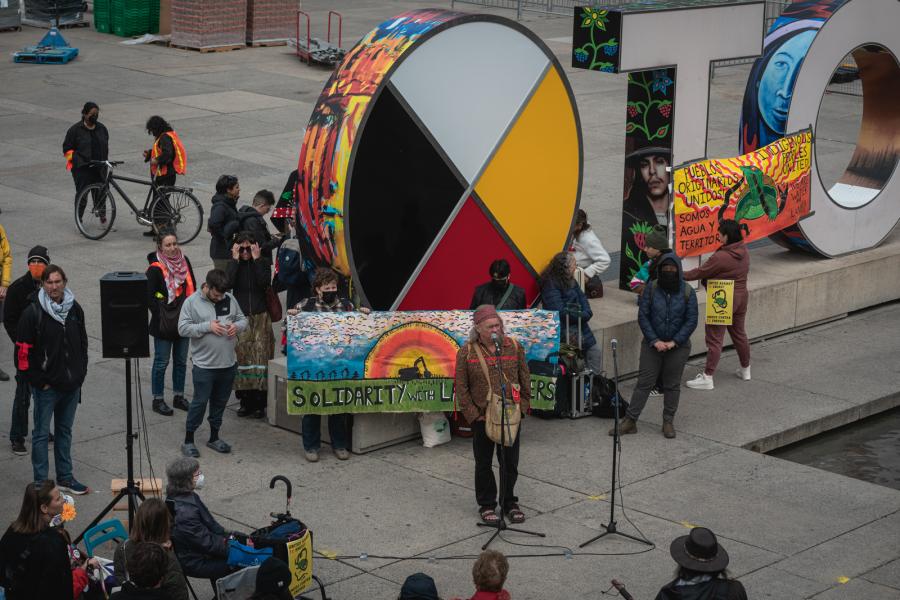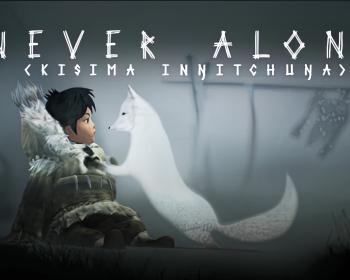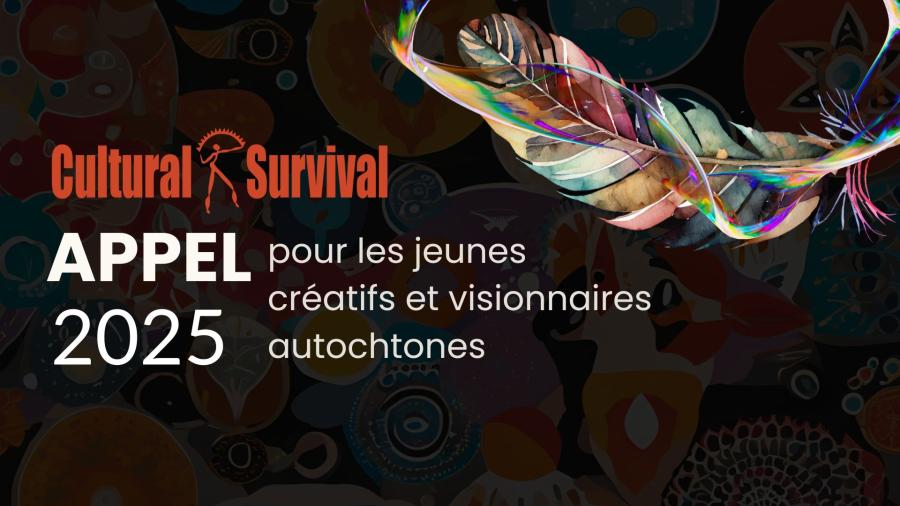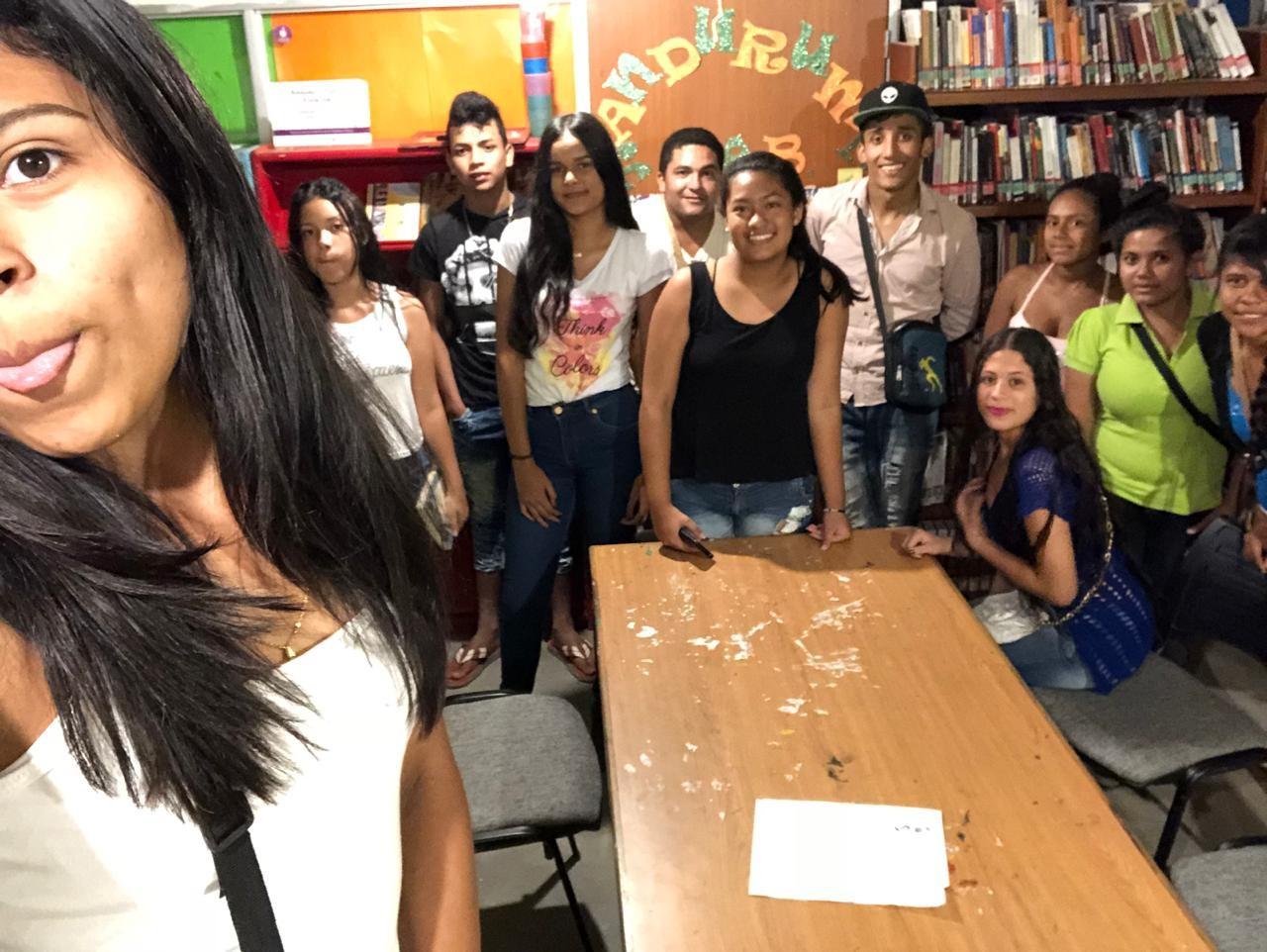
Imagine communities where every youth flourishes. We cannot foresee the future but we do know that when Indigenous youth are supported in cultivating their creativity, true potential is unlocked. Cultural Survival is pleased to announce our 2019 Indigenous Youth Community Media Fellows, as part of the Community Media Grants Program. The Fellowship Project aims to support young Indigenous leaders between the ages of 16-26, who are committed and eager to learn about technology, program development, journalism, community radio, media, and Indigenous Peoples’ rights advocacy. Capacity of the fellows will be built through trainings, community radio station exchanges, and conference attendance.
This fellowship is an opportunity to assist fellows in their visions to represent the voices of their communities and bring awareness of local issues to global conversations through their proposed projects, all the while strengthening their cultural identity and leadership.
Liza Francis Henríquez and Jeyson Adonis Miranda (Miskitu) from Radio Yapti Tasba in Puerto Cabezas, Nicaragua
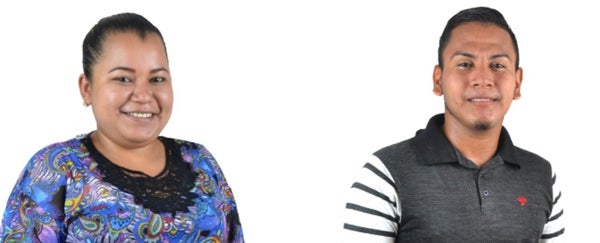
Liza Francis Henríquez (25) has been volunteering for two years at Radio Yapti Tasba. As a young Msikitu women, she has always been interested in communication and has been involved with the Continental Link of Indigenous Women in the Americas (ECMIA) that advocates for the rights of women, youth, children, and Indigenous Peoples.
Jeyson Adonis Miranda (23) has been volunteering for over five years at the station and has worked with different organizations, such as the European Union, facilitating workshops on sexual and reproductive education and youth health.
Liza and Jeyson live in one of the most impoverished areas of Nicaragua, the Autonomous Region North of Caribbean Coast, where access to technology and social networks is very limited, and where radio has been the principal means of communication for the Misikitu population. Their fellowship project, The Historical and Present Defense of Mother Earth, aims to create four monthly programs on the historic resistance of Miskitu people, Indigenous movements, legislation on collective land titles, and education on: Free, Prior and Informed Consent, ILO Convention 169, and United Nations Declaration on the Rights of Indigenous Peoples. Through facilitating ten training workshops, they will build capacity for young community journalists from eight Miskitu communities. Their goal is to groom fresh new voices who will support young women and youth leadership in their community.
Ronald José Fernández Epieyuu (Wayuu) from Utay Stereo in Guajira, Colombia

Ronald Josë Fernández Epieyuu (22) is a young community journalist who fluently speaks Wayuu and Spanish and graduated from the School of Communication for the Wayuu People. Ronald has three years of experience volunteering at the station and has been involved with the Wayuu Pütchimaajana Communication Network, narrating stories of the Wayuu territory. Ronald’s fellowship project, Nuchonyu Juya (The Children of the Rain), is an eight-month program radio series on ancestral knowledge, Wayuu culture, language preservation, and rights of Indigenous Peoples. His goal is to, present issues in the community, celebrate cultural strengths, and reinforce ancestral practices among the youth. He will also create 12 radio spots in Wayuu and Spanish that will be released every 15 days for six months. Ronald’s vision is to strengthen his people and share their experiences to the outside world to protect the Wayuu territory.
Manuel David Loja Pugo, Jessica Tatiana Sarango Rumipulla, Cristofer Arévalo Rumipulla, (Kichwa) from Radio Kimsakocha in Cuenca, Ecuador
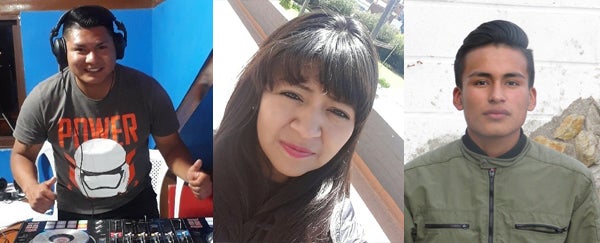
Manuel, Jessica, and Cristofer are a group of community journalists who have been volunteering at Radio Kimsakocha over the past year. Manuel (25) is a DJ and producer and dreams to travel around the world. Jessica (24) is a broadcaster at the radio and her hope is to engage more young women leaders in the field of communication and dreams to one day speak Kichwa fluently. Cristofer (15) is the youngest volunteer and a student at the Missionaries Oblates. He aspires to learn more about mechanics of editing radio programs.
Their fellowship project, Punto & Coma, will create a radio series consisting of two history programs and two radio spots each month for Radio Kimsakocha on the protection of water, liberation of the Mother Earth, and stories of Kichwa leaders. Through their project, they aim to strengthen the Kichwa language and culture and create an intercultural bilingual education communication bridge for Indigenous youth in the Tarqui, Cuenca area. They will also receive four trainings focused on journalism to enhance their capacity in investigation, interview, and research techniques for the program series.
Martha Ortiz Gómez (Maya Mam) from Radio Nan Pix, in San Ildelfonso Ixtahuacan, Guatemala

Martha (23) has been volunteering at Radio Nan Pix for over two years. She speaks Mam and Spanish fluently, and received a diploma in Maya Women Politics from the Political Association of Mayan Women (MOLOJ). She has been active in advocating for collective rights of Maya women and working for democracy for Mam community journalists. Martha’s project is to strengthen the participation of young women in local political, social, and cultural spaces, and to raise community awareness of the importance of young women’s participation in radio. She will conduct evaluation research on the current situation of young women in San Ildelfonso, design two workshops for 30 youth based on the research to address the underlying obstacles which hinder youth and young women’s participation in community media. Martha will also organize three radio forums on Indigenous communications, journalism, and radio talk shows to encourage youth participation. The final part of her project is the creation of two programs produced collectively with local youth on Indigenous youth rights.
José Samuel López Pérez, Feliciana Carolina Raymundo Laynez, Diego Cobo Bernal, Petrona Raymundo Cobo (Ixíl), from Q’Ajsab’ Yol Tenam in Nebaj, Guatemala
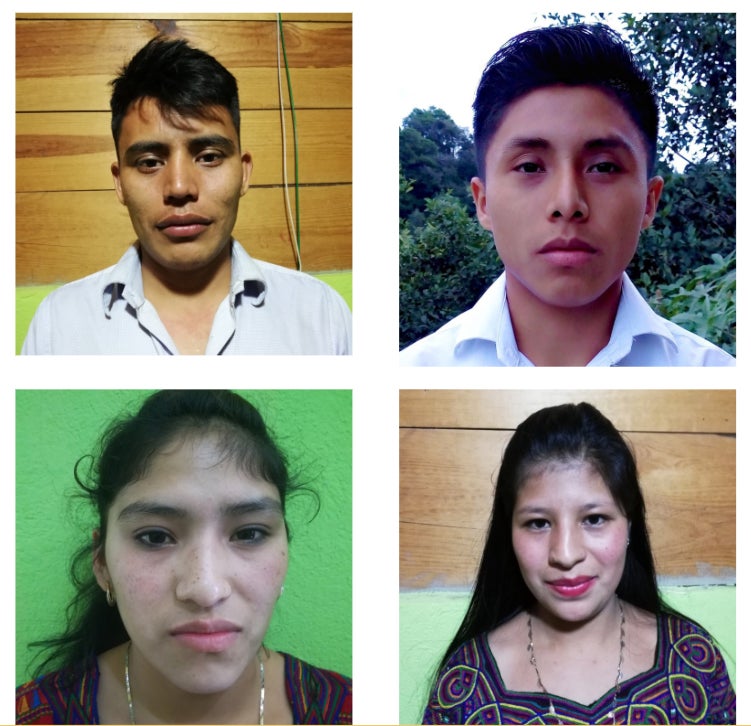
José Samuel López Pérez (25), Diego Cobo Bernal (23), Feliciana Carolina Raymundo Laynez (22), Petrona Raymundo Cobo (18) are Ixíl youth with four years of experience in radio production and video making. Their dream is to establish a community radio in Nebaj that will reach all Ixíl people in the region. They have participated in social networks such as Red Tzikin, Chemol Txumb’al and University of Ixíl activities in recuperating the history, knowledge, and practices of Ixíl people. The group has also been involved with the protection of ancestral land supporting Ixil authorities in resisting mining and hydroelectric operations in Nebaj and advocating for Indigenous rights.
Their project is to create a digital media hub for the youth in Nebaj producing audio and videos in Ixíl and Spanish to increase awareness on the struggles in their community, highlighting themes on Indigenous Peoples rights, cultural identity, history, and making visible the fundamental and indispensable role of youth and young women. They will produce three audios and two videos per month for duration of 10 months.
Kankuamo Youth Commission (Kankuamo) from Atanquez, Sierra Nevada of Santa Marta, Colombia
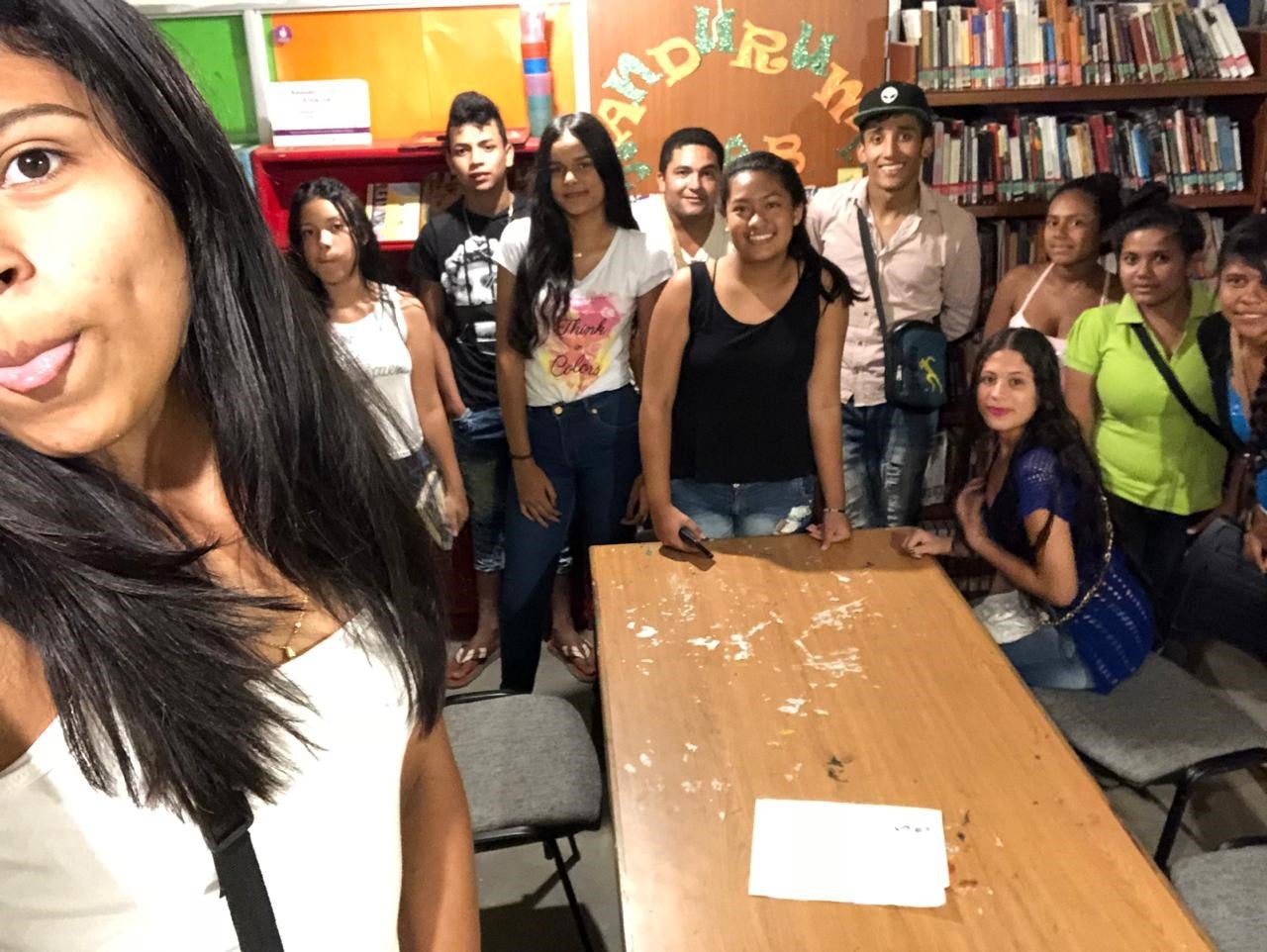
The Kankuamo Youth Commission is a group of 12 youth between the ages of 16 to 25 years old who were inspired by the community radio Tayrona Stereo, Kankuamo TV, and Public Library Kankuaka to create a youth lead initiative in addressing the violations of their rights and recovering their cultural identity via media. Technology has been an outlet in strengthening Kankuamo traditions, rescuing cultural practices, and defending ancestral territories in the Sierra Nevada of the Santa Marta region, were youth leadership has been emerging. With the support of the Kanduruma Lab, founded by Kankuaka Public Library, where youth receive media literacy education and awareness on the environment and Kankuamo culture the youth would like to offer something similar to other youth. The group’s proposed project is to develop video and audio productions focused on promoting Indigenous rights, land protection, oral traditions, sustainable development, food sovereignty, and how to live in harmony with the local ecosystem. They will create five radio that will air on Radio Tayrona Estereo, a short video, along with launching a blog and podcast channel for youth actions. They will also facilitate capacity building workshops on media literacy to over 400 youth residing in the Sierra Nevada of Santa Marta.
